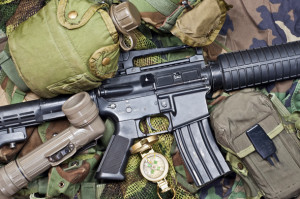
This announcement is nothing short of a departing gift by the US president to the “rebels” who have lost most of the territory they had under their control until a year ago. Should this decision be called a potentially positive step towards resolution of the conflict? We would call it this way if we too were impressed by Obama’s rhetoric. What this step really appears to be is a repetition of the past mistakes the US has committed in Syria, Libya, Afghanistan and Iraq and goes well into the direction of causing more devastation.
According to the decision, the waived sections of the law will allow the US to provide “defence articles and services” to forces within Syria allied to the US, the White House said on Thursday December 8, 2016, a decision which the White House said is “essential to national-security interests” of the US.
While such a decision was taken in 2013 too, what makes this announcement different from the past is the (deliberately inserted) vagueness, allowing for wider interpretations in multiple ways based on what group the US identifies as a terrorist threat. According to the statement, “foreign forces, irregular forces, groups, or individuals” will receive these weapons to ‘counter terrorism in Syria.’
While the mainstream Western media has identified Kurds as the potential beneficiaries of this announcement currently fighting the IS in and around Raqqa, this decision, if not cancelled by the Trump administration, will have larger implications, particularly in terms of prolonging and complicating the war.
Notwithstanding the danger of these weapons falling into the hands of “terrorists”, the fact remains that the end result of this decision will put the US in trouble not only with Turkey but also pitch the Syrian forces against Kurds, who are certainly fighting for the interests of the US. Unsurprisingly, as the White House spokesperson stated, the US policy will remain the same even if Aleppo was to fall to the Syrian forces.
Thus ruling out the possibility of co-operation with Russia and over Syria over fighting IS, Obama’s decision to bolster the “rebels” appears to be as much of an attempt at “rescuing” these groups from the Trump administration as from the Syrian forces who, according to the latest reports, have already established control over 80 per cent of Aleppo.
With every Syrian district falling to the Syrian forces, it is becoming evident that the regime forces will be able to establish their control on most of Syria in the months ahead. While this would imply a defeat for the “rebels”, this scenario, as the Obama administration apprehends, might also present the Trump administration with a fait accompli in Syria and force the new president to embark upon a policy of abandoning the assets the US has established.
Hence, as the Washington Post reported in a recent story, John Kerry’s quiet mission to strike a deal with Russia to pre-empt Trump’s different approach.
While Donald Trump has repeatedly stated about the need to co-operate with Russia and Syria to fight the Islamic State, a different kind of deal that Kerry might be ready to offer would restrict co-operation to just one city: Aleppo. The bigger question of fighting terrorism would remain unresolved and the recently announced supply of weapons to the “rebels” (who are terrorists for Syria) would potentially keep the conflict very much alive.
Let’s call a spade a spade. There is nothing new in the newly announced decision. This is potentially what the US has been doing for years. Being yet another step in the direction of protecting (read: John Kerry’s deal) and arming (read: waiver decision) “rebels”, the US is deliberately encouraging armed groups in Syria, regardless of what these groups call themselves.
They are groups who fight alongside Al Qaeda-affiliated forces and some of whom are reportedly willing to join Al- Qaeda in the wake of their defeat in Aleppo. Will not then the US, rather than Russia or Syria as Washington wants us to believe, stand accused of committing crimes in Syria?
Needless to say, the Nobel peace laurate’s decision to provide more advanced and sophisticated weapons to proxy groups in Syria has neither received condemnation from its allies in Europe or the Middle East nor invoked criticism from within the US for supporting “rebels” who are radical enough to become another Islamic State in Syria, cause more physical devastation and endanger more lives. Still, the West speaks of a humanitarian crisis as if it was the making of some alien forces.
Salman Rafi Sheikh, research-analyst of International Relations and Pakistan’s foreign and domestic affairs, exclusively for the online magazine “New Eastern Outlook”.